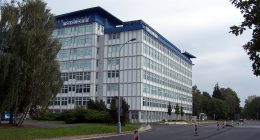Japan-based Toyota Motor corp announced today of plans to transform its idea of a prototype city of the future called “Woven City” (the distinct name referring to its loom manufacturing origins), into reality. The company will start the same by converting a car factory located at the base of mt. fuji into a home for 2000 residents after its closure by the end of the year 2020. The “smart homes” of the 175 acres site acclaimed to be “the City of future” will be powered by hydrogen fuel cells, artificial intelligence, and other modern technologies.
It can serve as a potential home for its employees, retirees and other people involved, thus providing better housing facilities with easily accessible police, fire, and ambulance. Toyota says, that it will be a safer and cleaner option which will give direction to the international community on creating more immersive cities around the globe, which are also sustainably built.
Toyota stated that it is open for potential partnerships with companies seeking a testing ground for the use of technology for their development and research purposes while acknowledging only a few may show interest in this rather expensive and lengthy project.
Toyota’s rival companies can get a hard time in order to counter its industry-leading investment on the concept of Digital housing. It shows its chief executive Akio Toyoda’s ambitions by investing financial as well as political resources in its country of origin. Toyoda stated, “You know if you built it, they will come,” on his project mentioned by him as “my personal ‘field of dreams’.” To further add humor to his CES keynote he added, “You may be thinking,’ Has this guy lost his mind?'” then adding “Is he like a Japanese version of willy Wonka? Perhaps.”
Toyota’s housing unit has a strong presence in Japan, having sold more than 100,000 homes in a time interval of 37 years in its home country.
The company has commissioned Danish architect Bjarne Ingels, popularly known for designing the world trade center buildings and Google offices in the silicon valley and London, for designing this new city.
The audacious plan shows Toyota’s push at designing cities of the future for cutting climate-changing emissions, reduce congestion and apply the internet of things to everyday life, still an ambition of many other automobiles manufacturers.





